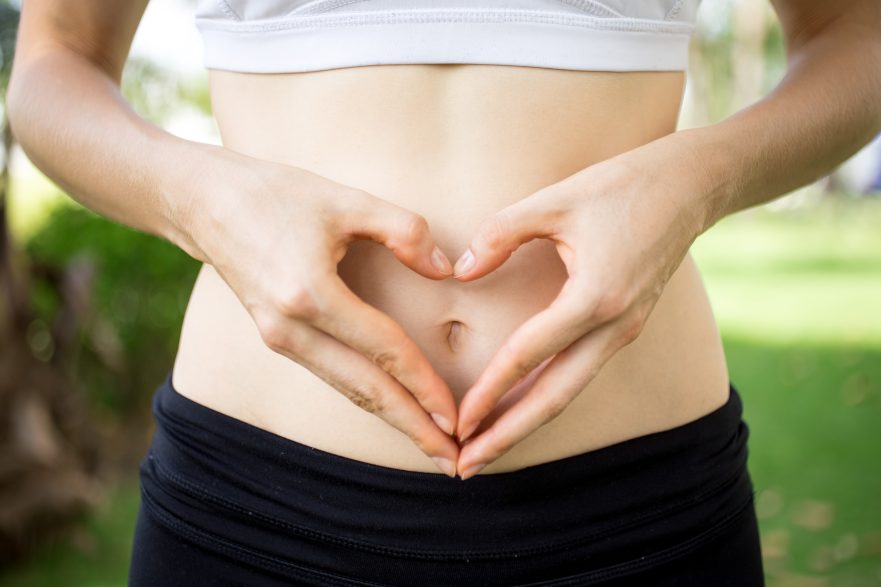Did you know that there is a difference between “gut health” and “digestive health”? Although they are related, the impact of gut health is significantly broader that just how well you digest food.
In this article, we hope to give you some helpful insights on how gut health is different from digestive health and how you can improve your gut health.

An Overview of Digestive Health
First, let us start with understanding how digestion works.
When we eat, our teeth tear up and mash the food. Then our saliva starts to break down the food. This is the first critical step in digestion and the reason why you have often been told to chew your food thoroughly.
The esophagus carries food from the mouth to the stomach where acid and enzymes digest the food. From the stomach, food enters the
small intestine where it is further broken down by digestive enzymes produced by the pancreas and bile acids released from the gallbladder. The small intestine absorbs the digested nutrients and passes the undigested food to the colon for further digestion primarily by bacteria. Finally, the waste is expelled from the body.
As a broad rule, moving the bowels three times a day to three times a week is considered normal. Faeces should be well-formed, not watery, and should not include bits of undigested food.
Unfortunately, at some point, most of us have experienced digestive problems like the ones below:
- Constipation
- Diarrhoea
- Excessive gas
- Excessive bloating
- General discomfort
When these symptoms persist, they may be a sign of an underlying problem that needs medical attention. If left unattended, they can lead to more chronic, debilitating digestive diseases and disorders down the road such as:
- Celiac disease
- Crohn’s disease
- Ulcerative colitis
- Diverticulitis
- Irritable bowel disease
- Gallstones
- Irritable bowel syndrome
- Gastroesophageal reflux
- Food sensitivities or allergies
Heathy digestion is important! There are many foods and remedies that can help to improve digestion and minimize potential digestive problems. Please turn to page 4 for more information on this topic.
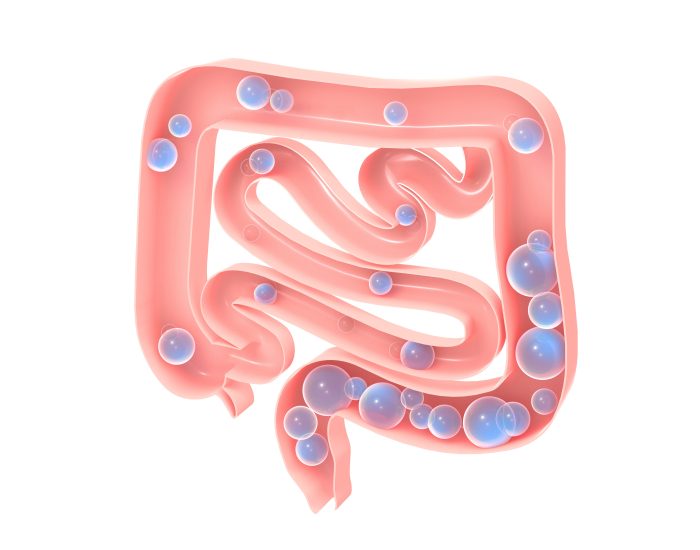
How Digestive Health Is Impacted by Gut Health
The large intestine (a.k.a. the colon or simply called the ‘gut’) is the last stop of the digestion train and has an enormous impact on digestive health.
When the large intestine receives food from the small intestine, the food has been liquified by the digestive process and most of the nutrients have been absorbed. The colon’s job is to dehydrate what is left of the food and form it into stool. It does this by slowly absorbing water and electrolytes as its muscle system moves the waste along. Meanwhile, the bacteria living in the colon feed on the waste and break it down further, completing the chemical part of the digestive process.
These gut microbiotas are also equipped with enzymes to break down specific food ingredients like the prebiotic fibres that bypasses digestion in the stomach and the small intestine. These prebiotic fibres are fuel to the gut microbiotas and make them grow stronger. During this process, gut microbiotas ferment and change prebiotics into metabolites, such as short-chain fatty acids, which are important to bowel health and may protect against cancer. These fatty acids are also absorbed into the bloodstream and may play a role in lowering blood cholesterol levels.
Through this digestive process, these beneficial bacteria also help regulate bowel movement and produce antibiotics to fight off bad bacteria. They also strengthen the gut walls, which support healthy digestion and protect the rest of the body from potential pathogens.
The gut microbiome comprises many species of bacteria. Most of which are helpful to our digestion and our general health, but there are also bad bacteria found in the gut that can cause harm.
When the “good” bacteria are flourishing, they eradicate the “bad” ones that can wreak havoc on your digestion. However, when the good bacteria are not strong enough, the bad bacteria are left unchecked. When this happens, the bad bacteria in the gut can use your nutrients to feed themselves and grow stronger. This can leave you more prone to a host of health conditions including allergies and food sensitivities; disruption to your digestive system such as small intestine bacterial overgrowth; and in serious cases, autoimmune conditions such as leaky gut, Crohn’s disease, irritable bowel syndrome (IBS), ulcerative colitis and celiac disease.
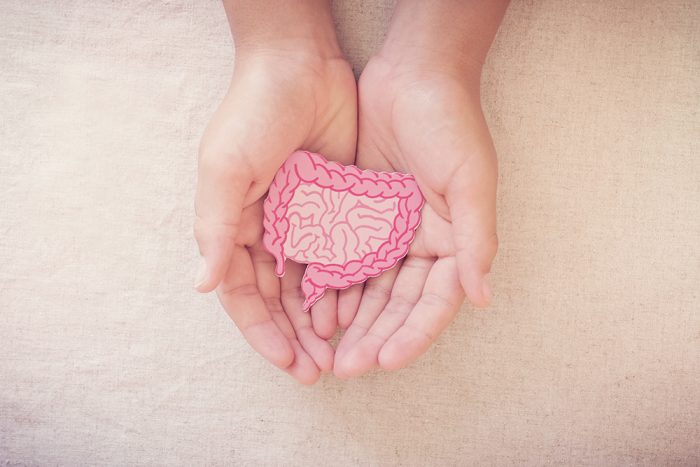
Gut Health Is WAY Broader than Just “Good Digestion”
Ultimately, gut health encompasses digestive health. Keeping your digestive process operating smoothly is just the initial, localized effect of a healthy gut. The full impact of a strong gut microbiome extends far beyond digestion.
Based on recent advancements in science, technology, and research, we now know that the gut determines the health of just about every other part of our body. Its strength is critical for preventing diseases and promoting overall well-being.
When we possess good gut health, we experience:
- good digestion
- effective absorption of nutrients
- a wide range of flourishing gut microbiota
- a robust immune system
- lowered levels of inflammation
- improved heart health
- steady blood sugar levels
- steady weight control
That is why we emphasize on keeping our gut microbiome populated and balanced with the most beneficial bacteria (probiotics) and promoting their growth with prebiotics.
Some foods and supplements with probiotic cultures, which are intended to be “helpful” in improving digestive health, are ineffective and unable to make much of a difference. This is because digestive enzymes and acids in our digestive process break down most probiotic food and supplements before they can even reach the gut.
It’s important to do your research and look out for probiotic solutions that can make it to the gut where they can make a difference in your digestive health and overall gut health. Here are two of our SUPERSTAR products that give you the solution:
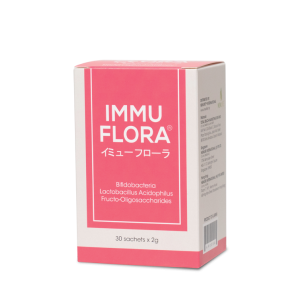
NewLife™ Immuflora® is specially formulated to be able to reach your gut intact so that it can increase the good bacteria in your gut and at the same time provide prebiotics for the good bacteria to repopulate.
NewLife™ Herbal Klenz not only contains natural fibre that promotes healthy bowel movement but also prebiotic fibre that is important for a healthy, thriving gut microbiome.
When the good bacteria in your gut are thriving, you will feel a difference in your health right away. Besides taking NewLife™ Immuflora®and Herbal Klenz daily, there are other simple steps that you can take to keep your gut healthy and happy:
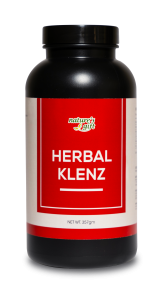 01 Eat More Fibre
01 Eat More Fibre
Fibre helps keep the colon healthy by speeding up the transit time through the body. A faster transit time means any toxins taken in spend less time in the body. Fibre also helps remove the bad bacteria and toxins from the colon.
Make sure you include a variety of:
- Soluble fibre (such as beans, lentils, peas, fruits, and veggies), which absorbs toxins and unneeded cholesterol;
- Insoluble fibre (such as nuts, seeds, whole grains, fruit skins, green veggies), which speeds up elimination, and;
- Prebiotic fibre (such as brown rice, seeds, leeks, asparagus, onions, garlic, bananas, artichokes, chicory root, yacon root, citrus, berries, plums, apples), which pass through the GI tract undigested and stimulate the growth and activity of certain good bacteria in the large intestine.
02 Drink More Water
Always be sure to increase your water intake along with your fibre. Water helps fibre move through your digestive tract and can prevent the initial onset of symptoms that can result from adding more fibre to your diet such as gas, bloating, or abdominal cramping.
Practically speaking, when adding fibre to your diet, drink two glasses of water first thing in the morning instead of one. Also, add an extra glass of water in the afternoon and another before you go to bed.
However, there is one type of water you should avoid—alkaline water, which may neutralise the hydrochloric acid in the stomach and end up reducing the strength of stomach acid present in the stomach. This may cause heartburn, gas and bloating.
Drinking distilled water is what we recommend as it provides the purest form of water available for the purpose of hydrating the body.
03 Manage Your Stress
Too much stress can take a mental and physical toll on your body—causing problems in your gut. The effect that stress has on your gut depends on the length of time you are experiencing stress and your body’s resilience to stress:
- Short-term stress can cause you to lose your appetite and your digestion to slow down.
- Long-term stress can trigger gastrointestinal (GI) issues, like constipation, diarrhoea, indigestion, or an upset stomach.
- Chronic stress may lead to more serious issues, like irritable bowel syndrome and other GI disorders.
Take time out for yourself to de-stress and relax.
Exercise
Yes, exercise is good for just about everything, including gut health! Having strong muscle tone around the abdomen helps move food through the digestive tract. Regular exercise can improve digestion, even if you do not change what you eat! Make sure to add 30-40 minutes of moderate exercise into each day such as brisk walking, running, swimming, resistance exercises or rebounding.

